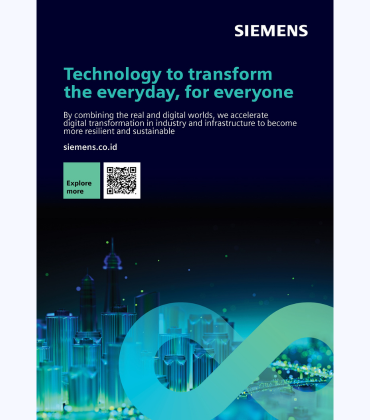Indonesia’s Food Packaging Sector is Primed for Circular Economy Applications
13 May 2024

Amidst global calls for environmental responsibility, Indonesia's food packaging industry stands at a critical crossroads. The outgoing President Joko Widodo has made this clear in his issuance of Presidential Regulation No. 73/2023, which underscores a fundamental shift towards prioritizing environmental preservation within the packaging landscape.
Signed on November 2023, the regulation brings back the government’s commitment towards reducing the country’s plastic waste footprint by setting revenue targets from a plastic excise tax, potentially amounting to Rp 1.85 trillion (roughly US$115.22 million).
An excise on plastics – as well as sweetened beverages – had been planned since 2016, but no concrete steps were taken until 2022 when the government first included a revenue collection target from the tax in the 2023 budget. However, the government delayed the implementation due to concerns regarding global economic downturns.
The trajectory towards sustainability is not merely a governmental decree; it is a strategic call driven by several factors. Foremost among these is growing consumer awareness and demand for eco-friendly packaging solutions.
In a December 2023 survey on sustainable consumption by Rakuten Insight, 79% of Indonesian consumers expressed willingness to pay more for sustainable and environmentally-friendly products.
As quoted from the survey, 65% of customers in Southeast Asia (SEA) consider sustainability-focused tactics such as sustainable product packaging and the use of collection points to reduce greenhouse emissions to be the most important factor attracting them to retailers. This is most true of the Philippines where 74% of respondents say sustainability is their primary consideration in picking a retailer to buy from. Over 60% of the survey’s respondents in Malaysia and Indonesia indicated the same opinion.
Supply chain ethicality was the next issue of concern to SEA customers, wherein 40% of the total respondents revealed that ethical supply chain practices – such as the sourcing of the raw materials used for the products and as well as the processes and logistics – was a key consideration when choosing retailers.
This shift in consumer preferences underscores the pressing need for industry players to embrace sustainability as a core tenet of their business strategies.
Indonesia's rich biodiversity and strategic geographical position further underscore its potential as a hub for sustainable packaging solutions. With abundant natural resources and a burgeoning manufacturing sector, the country possesses the necessary ingredients to drive transformative change within the global packaging ecosystem.
Moreover, the global momentum towards sustainable packaging practices, exemplified by initiatives such as the European Union's proposed sales tax on plastic packaging, presents opportunities for Indonesia to leverage its position as a key player in the international marketplace.
The regulatory landscape, characterized by the impending imposition of excise taxes on plastics and sweetened beverages, is a necessary catalyst to drive this transition towards sustainability. While the implementation of these measures has encountered delays, their inclusion in successive budget plans underscores the government's unwavering commitment to effecting tangible change.
Crucially, the stories of countries that have implemented plastic excise taxes with considerable success serve as inspiration for Indonesia's own sustainability journey. As quoted from the 2020 World Bank report titled ‘Taxes on Sugar-Sweetened Beverages: International Evidence and Experiences’, South Africa and Portugal earned $140 million and $90 million in plastic excise tax revenues, respectively. These examples underscore the economic viability of sustainable packaging solutions. By harnessing lessons learned from global best practices and fostering cross-border collaboration, Indonesia's food packaging industry can chart a course towards sustainable growth and resilience.
The global packaging market is experiencing exponential growth, poised to hit $1.05 trillion in 2024, marking a 14.5% increase since 2019, according to Benchmark International. Within this burgeoning landscape, Indonesia's food packaging machinery sector occupies a prominent position. Valued at $7.2 billion in 2021 and forecasted to grow 3-4% annually, according to the Indonesian Packaging Federation, it represents an important engine of economic growth and innovation.
As Indonesia charts its course towards a greener future, the food packaging industry can trailblaze a path of progress and promise. Through concerted efforts and collective resolve, stakeholders are poised to redefine industry norms and shape a more sustainable tomorrow.

















